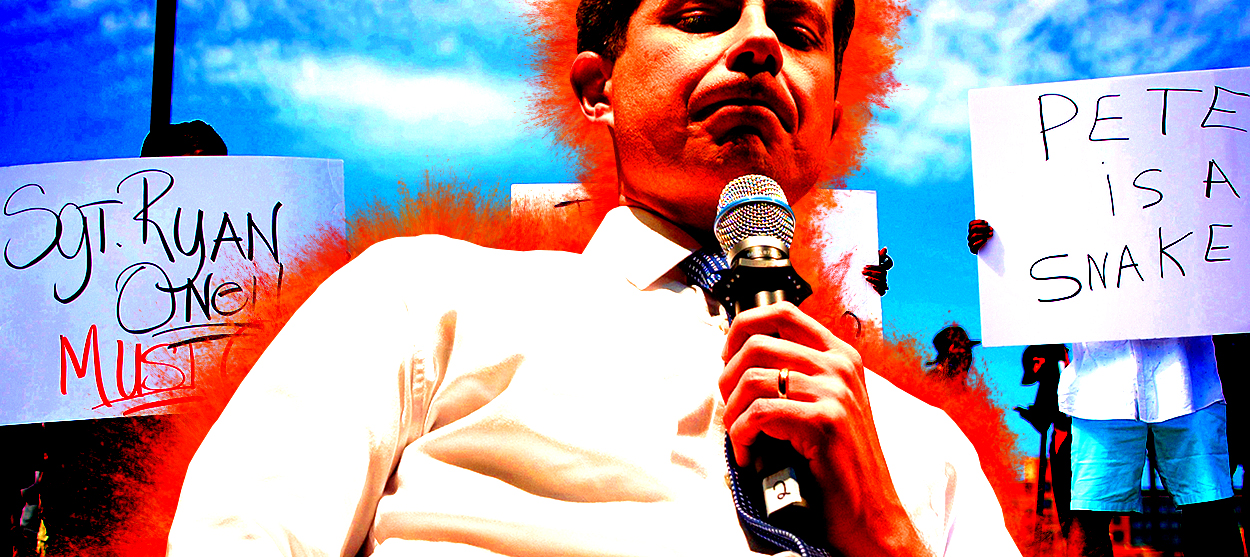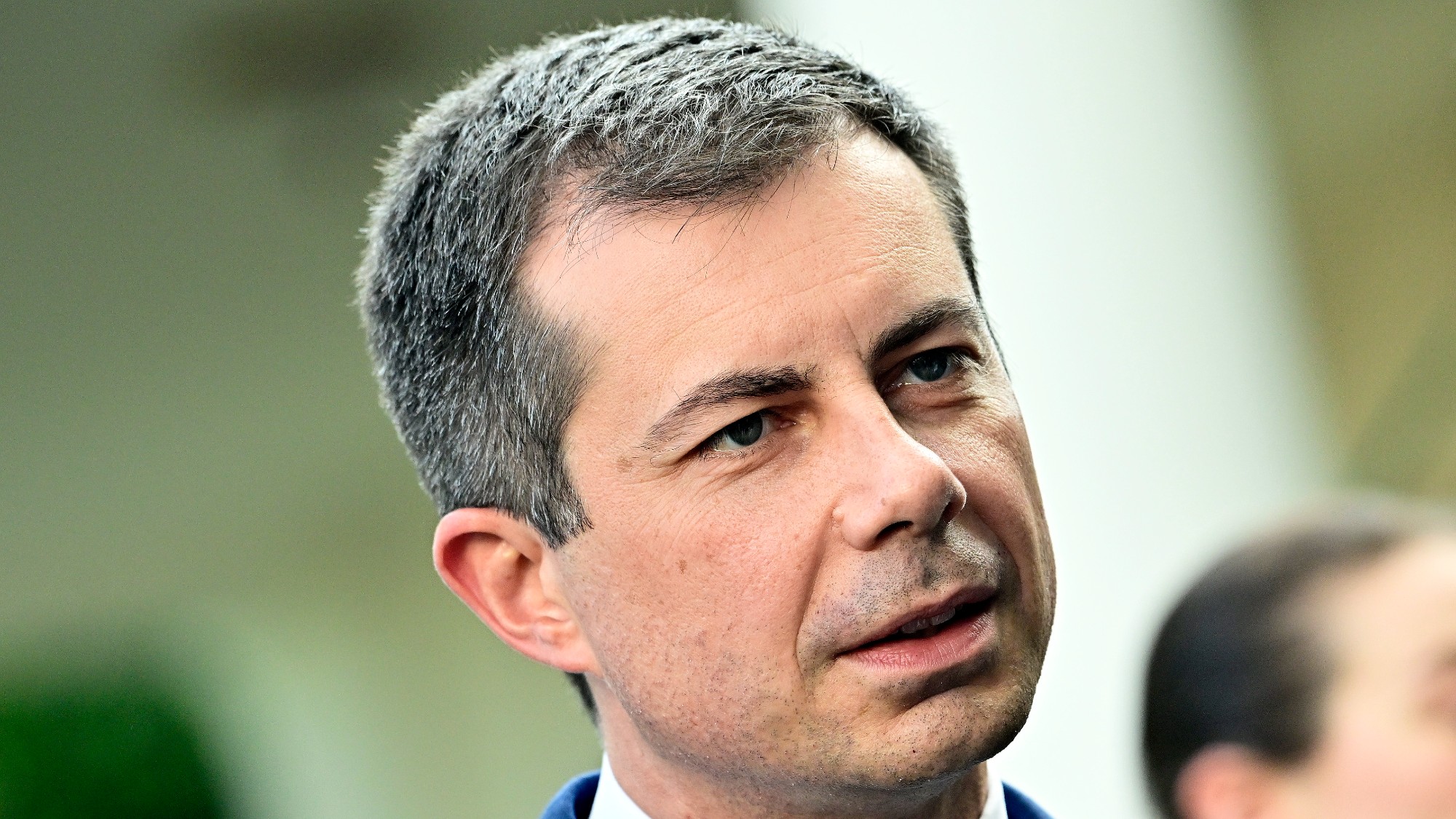Pete Buttigieg's self-inflicted black voter problem
The rising Democrat could start by not treating black South Carolinians like cheap campaign props


A free daily email with the biggest news stories of the day – and the best features from TheWeek.com
You are now subscribed
Your newsletter sign-up was successful
Unusual political events should have lost the ability to surprise during the presidency of Donald J. Trump, and yet, once again here we are. The mayor of a smallish Indiana city has become a first-rank presidential contender. Despite still lagging far behind nationally, South Bend Mayor Pete Buttigieg sits firmly in fourth place in the race for the 2020 Democratic nomination, with nearly double the support of Kamala Harris. More importantly, he has pulled into first place in Iowa according to recent polls, just slightly ahead of Elizabeth Warren, Bernie Sanders, and Joe Biden.
Yet with only a couple months left before voting begins, Buttigieg faces an enormous obstacle in the form of African-Americans. A recent poll of South Carolina found him at a big fat zero among black voters there. And he has exacerbated this problem with a shockingly duplicitous attempt to prove that he has some black support. It may be a lesson in the limits of the politics of cynicism.
Seemingly in response to criticism over the lack of diversity among his support, Buttigieg recently trumpeted the release of a "Douglass Plan" to achieve racial justice. The plan is a mixture of weak ("health equity zones," a commission to merely study reparations), decent (a small proposal to subsidize minority-owned businesses), and the actually quite good (legalize marijuana, abolish the death penalty, raise the minimum wage to $15, statehood for D.C.) policy ideas.
The Week
Escape your echo chamber. Get the facts behind the news, plus analysis from multiple perspectives.

Sign up for The Week's Free Newsletters
From our morning news briefing to a weekly Good News Newsletter, get the best of The Week delivered directly to your inbox.
From our morning news briefing to a weekly Good News Newsletter, get the best of The Week delivered directly to your inbox.
It is, of course, far short of what would be needed to truly abolish racial injustice in the United States. For instance, Buttigieg correctly notes that there is a gigantic wealth gap between black and white Americans. But his primary policy to combat this problem is a complicated means-tested scheme to promote black homeownership. This runs directly into the problem that black-owned homes are worth less and appreciate less than white-owned ones. The wealth gap would be closed a lot faster by promoting asset ownership whose returns do not vary by the race of the owner, like stocks (though of course we might support black homeownership for other reasons). More importantly, wealth inequality is enormously great within all races, whites very much included. The only realistic way to actually close the wealth gap across the whole black population (as opposed to creating a small elite of wealthy black households who would bring the racial average up to that of whites) would be to democratize the ownership of the entire capital stock across all races, through something like a social wealth fund, or worker ownership funds as Bernie Sanders has proposed.
But still, compared to the modern Democratic Party average in this department, the Douglass Plan is certainly above par. The real problem came with how it was presented and sold. As Ryan Grim details at The Intercept, the Buttigieg campaign initially boasted that it had 400 South Carolinians supporting the plan, but they got that "support" by asking people via an email if they wanted to opt out, not by getting their affirmative agreement. Several of the black leaders listed were baffled and outraged, including state Rep. Ivory Thigpen, who has already endorsed Bernie Sanders.
The email announcing the plan also said the 400 supporters were black, only it turned out that, of the people Grim could identify on the list, 62 percent were white. And a stock photo that the campaign had used to promote the plan was actually of a Kenyan woman. Whoops.
This all raises the question of just what Buttigieg was trying to accomplish with this rollout strategy. Tricking people into "endorsing" a plan — and, it was quietly implied, supporting the Buttigieg campaign — evinces a cynical contempt that has marked the campaign for the past several months. A candidate that actually cared about black South Carolinians would not enlist their support like a telecom company changes its terms of service.
A free daily email with the biggest news stories of the day – and the best features from TheWeek.com
But it is something that a candidate who was merely concerned about the perception of lacking black support would do. Since Buttigieg started angling for the centrist donor class route to the nomination by abandoning his previous commitments on democratic reform, attacking Medicare-for-all, and cashing checks from big-dollar fundraisers, he has gained substantial support from credulous educated white liberals. Still, even among this group there are fears that he will not be able to inspire a big black turnout — an absolutely essential element to Democratic victory — in the general election. Waving around a racial justice plan with some black names attached is one way to convince anxious white liberals desperate to defeat Trump that Buttigieg is a safe bet — and the campaign may figure that if they can lock up the nomination, black voters will have no choice but to get in line (though Hillary Clinton's campaign has some lessons in that regard).
There's only one problem: actual black voters, who are liable to be offended at being treated like cheap campaign props to be manipulated at will. If Buttigieg doesn't want to be wiped out in the South, he'll need to show his commitment to racial justice is more than just convenient, and he might consider learning how to ask permission.
Want more essential commentary and analysis like this delivered straight to your inbox? Sign up for The Week's "Today's best articles" newsletter here.
Ryan Cooper is a national correspondent at TheWeek.com. His work has appeared in the Washington Monthly, The New Republic, and the Washington Post.
-
 Political cartoons for February 21
Political cartoons for February 21Cartoons Saturday’s political cartoons include consequences, secrets, and more
-
 Crisis in Cuba: a ‘golden opportunity’ for Washington?
Crisis in Cuba: a ‘golden opportunity’ for Washington?Talking Point The Trump administration is applying the pressure, and with Latin America swinging to the right, Havana is becoming more ‘politically isolated’
-
 5 thoroughly redacted cartoons about Pam Bondi protecting predators
5 thoroughly redacted cartoons about Pam Bondi protecting predatorsCartoons Artists take on the real victim, types of protection, and more
-
 The billionaires’ wealth tax: a catastrophe for California?
The billionaires’ wealth tax: a catastrophe for California?Talking Point Peter Thiel and Larry Page preparing to change state residency
-
 Bari Weiss’ ‘60 Minutes’ scandal is about more than one report
Bari Weiss’ ‘60 Minutes’ scandal is about more than one reportIN THE SPOTLIGHT By blocking an approved segment on a controversial prison holding US deportees in El Salvador, the editor-in-chief of CBS News has become the main story
-
 Has Zohran Mamdani shown the Democrats how to win again?
Has Zohran Mamdani shown the Democrats how to win again?Today’s Big Question New York City mayoral election touted as victory for left-wing populists but moderate centrist wins elsewhere present more complex path for Democratic Party
-
 Millions turn out for anti-Trump ‘No Kings’ rallies
Millions turn out for anti-Trump ‘No Kings’ ralliesSpeed Read An estimated 7 million people participated, 2 million more than at the first ‘No Kings’ protest in June
-
 Ghislaine Maxwell: angling for a Trump pardon
Ghislaine Maxwell: angling for a Trump pardonTalking Point Convicted sex trafficker's testimony could shed new light on president's links to Jeffrey Epstein
-
 The last words and final moments of 40 presidents
The last words and final moments of 40 presidentsThe Explainer Some are eloquent quotes worthy of the holders of the highest office in the nation, and others... aren't
-
 13 potential 2028 presidential candidates for both major parties
13 potential 2028 presidential candidates for both major partiesIn Depth A rare open primary for both parties has a large number of people considering a run for president
-
 The JFK files: the truth at last?
The JFK files: the truth at last?In The Spotlight More than 64,000 previously classified documents relating the 1963 assassination of John F. Kennedy have been released by the Trump administration
